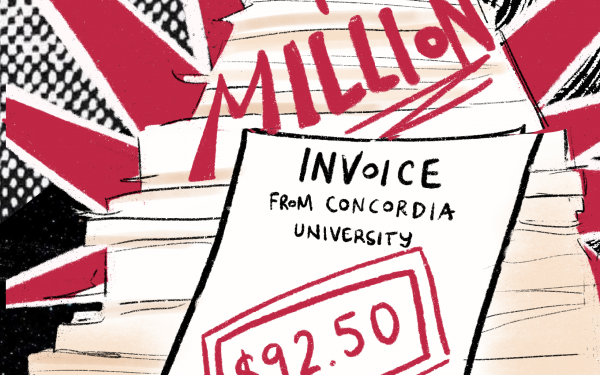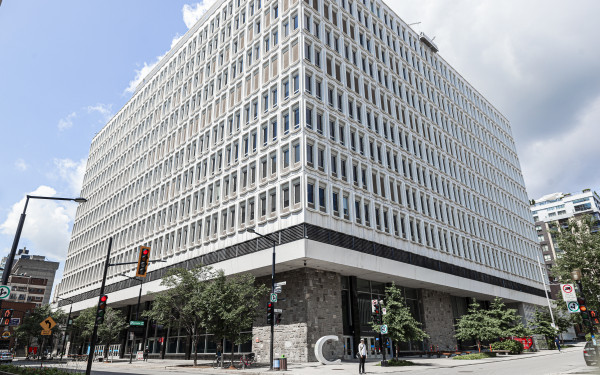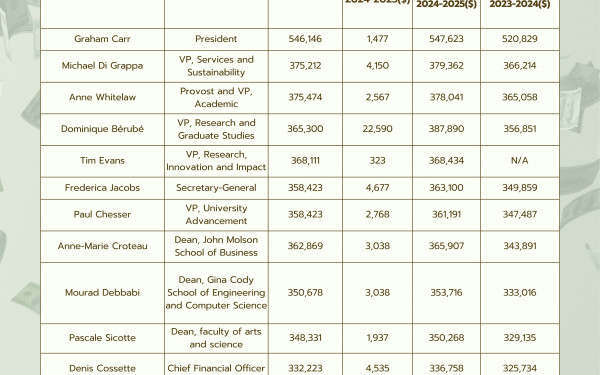Free education? Yes, please!
Students from low economic backgrounds are continuously at an academic disadvantage
As a Montreal native, my tuition at Concordia University was more affordable than it would have been had I been an out-of-province or international student.
However, this is not the experience of every North American student. With the budget cuts and tuition hikes sweeping English universities in Quebec in the past year, tuition fees are at an all-time high. As a result, Concordia’s enrolment rate has dropped by 30 per cent. And unfortunately, this is only the beginning.
Students enrolled in an English-language university are not the only casualties of high tuition. The cost of higher education is costly throughout North America, especially in the US. This is disheartening to those interested in learning and making a better living for themselves. Education shouldn’t have to be so costly.
Education is a privilege, when it should be a basic right.
In 2018, Statistics Canada found that workers in their 40s with a university degree earned $13 more on average per hour than those without any level of higher education. Should there be greater access to education, more workers could gain employment and attain income equality.
Many European countries, such as Germany, Austria, Iceland and Norway, offer free or nearly free tuition to international students attending public colleges. Even private European institutions tend to offer significantly lower tuition rates than the US, where nearly one-third of American students fall into student debt. The lower European tuition rates offer a great alternative for students from middle-class backgrounds who seek higher education.
Take Alexandra Fox, for instance. In a 2019 interview with Global News, this 30-year-old American student shared her experience of living with $105,000 USD in student debt. Fox was unable to work during the semester because her program of study was intense and did not offer her the time to do so. Thus, she was expected to start paying off her debt after graduation. Her six-figure debt is egregiously high seeing that she’s changed her program three times—which is not uncommon, especially among students who are undecided about their career path and those who specifically seek to make a high income. And Fox was not alone. Most of her friends were also in student debt.
While subsidized tuition is available to Quebec residents, not all North Americans are offered the same opportunity. According to the Canadian Federation of Students, Canadians owe $36 billion in student loans.
Education is expensive regardless of class discrepancies.
Higher education is currently an advantage for people of the upper class, as they have the means to finance their education and future. As a result, admission to an Ivy League school is extremely competitive. According to a 2023 civil rights complaint against Harvard University, applicants with a legacy status are six times more likely to be admitted into Harvard between 2014 and 2019. The chances of admission are even higher for donor-related applicants. Unfortunately, this level of competition is not feasible for low-income applicants. Additionally, due to budget cuts since 2019, certain schools have reduced or eliminated scholarships for these students. This puts low-income students at a greater disadvantage, as they lose a vital financial resource.
Lack of access to higher education has other effects on those from a low socio-economic background. Lower access to education is known to correlate with increased crime rates. A 2017 study in the Journal of Research in Crime and Delinquency showed that individuals with fewer years of higher education in the US were more likely to engage in crime. A 2004 study found that, between 1960 and 1990 in the US, a one-year increase in average schooling years led to a decrease in vehicle theft by 20 per cent.
At the same time, higher education is linked to greater levels of happiness.
Finland is ranked as the number one happiest country in the world. Their welfare system is the most generous worldwide as it covers many costs, including childcare, parental leave and tuition. This allows the population to have a healthy work-life balance—a coveted Western ideal. Due to Finland’s generosity, these individuals can focus on their relationships and interests, while maintaining their mental health. This model of living applies to all Finnish citizens, ensuring happiness and financial security for all.
Although the system in Finland is not universal, individuals from elsewhere in the world prove that a tuition-free education could invite prosperity and happiness to many more.
In 2020, Bricherland Quinones shared her story with Goodwin University in a personal essay. She is an example of someone whose proper education changed her life for the better. Quinones lived in a crime-ridden neighbourhood and was raised in a low-income household. Luckily, her mother sought a high school that changed the path of Quinones’s future.
Within this environment, Quinones was able to focus on her studies and succeed. Eventually, she was offered the opportunity to take college courses for free at Goodwin University in Connecticut, USA. This led Quinones to complete a bachelor’s and master’s degree at the University of Connecticut. She is now an English teacher in Japan. Quinones’s story is proof that access to education is life-altering, as she and her family are no longer living in poverty.
A free education proves to promise the potential of a better life. While it would take a lot of work and time to implement a tuition-free policy worldwide, stories such as Quinones’s confirm that a tuition-free education is a worthy pursuit for all.
As someone who recently finished her degree, I believe that higher education is a worthwhile experience that I hope many more people can experience someday.

_900_724_90.jpeg)





